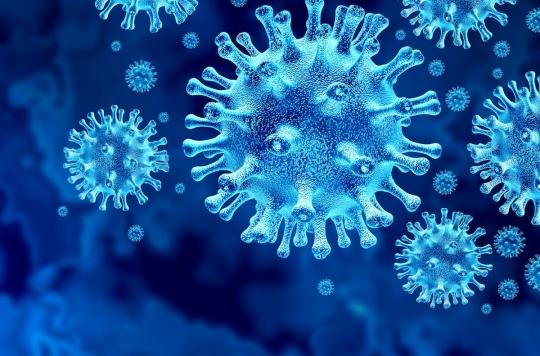The Thérapide project of the Institut Pasteur de Lille, carried out with the biotech Apteeus, which studies the effect of a molecule capable of inhibiting the replication of the virus, received the national priority label last Wednesday and will be able to launch clinical trials for measure its effectiveness. For its part, Pfizer has announced that it is working on two antiviral drugs against Covid-19.

- The “National Priority” label allows an acceleration of clinical trials by facilitating, in particular, the recruitment of patients.
- The first results of the drug from the Pasteur Institute in Lille showed its ability to quickly reduce the viral load in infected patients.
- Pfizer is working on the development of an oral drug and another intravenous and will continue its trials after good initial results.
It’s a boost that was expected. After having identified a particularly powerful molecule against SARS-CoV-2 in several preclinical models, researchers from the Institut Pasteur de Lille and the biotech Apteeus contacted the Ad hoc National Steering Committee for Therapeutic Trials (CAPNET), put in place by the government, to receive the “National Research Priority” label. This label allows an acceleration of clinical trials by facilitating, in particular, the recruitment of patients. After having suffered a first refusal despite excellent initial results, the researchers finally obtained this label on Wednesday April 7th.
Next step: clinical trials
Thanks to this achievement, the researchers hope to be able to begin clinical trials very quickly. “In the face of Covid-19, vaccination is an effective weapon but we will always need treatmentcommented Professor Xavier Nassif, Director General of the Institut Pasteur de Lille, in a communicated. I am delighted that the THERAPIDE project has obtained the National Research Priority label and hope that we will be able to quickly include the first patients in the study and measure the tolerance and efficacy of the treatment..”
This treatment is based on the repositioning of a molecule that would lower the viral load. “It is a drug that has antiviral activity so the objective is to reduce the patient’s viral loadhad described to Why Doctor Terence Beghyn, founding president of Apteeus. It alters the replication of the virus in the cells. When an infected person develops symptoms, the viral load is very high. As with an antibiotic, we help the body to fight against the pathogen and therefore the faster we reduce the patient’s viral load, the more the body will be able to fight effectively against this agent..”
After the vaccine, Pfizer on the trail of treatments
After setting up its vaccine, the American company Pfizer announced that it was working on two antiviral drugs against Covid-19. The first is administered orally and the second intravenously. They are “still at a very early stage of their development”, revealed David Lepoittevin, the spokesperson for Pfizer France, at the Parisian. The first in vitro results are encouraging and push the firm to “quickly launch a clinical study on healthy adults to assess the dose and tolerance of this drugsaid David Lepoittevin. The first results could arrive soon. The intravenous antiviral candidate is also undergoing a clinical trial in participants with Covid-19 and hospitalized.”


















